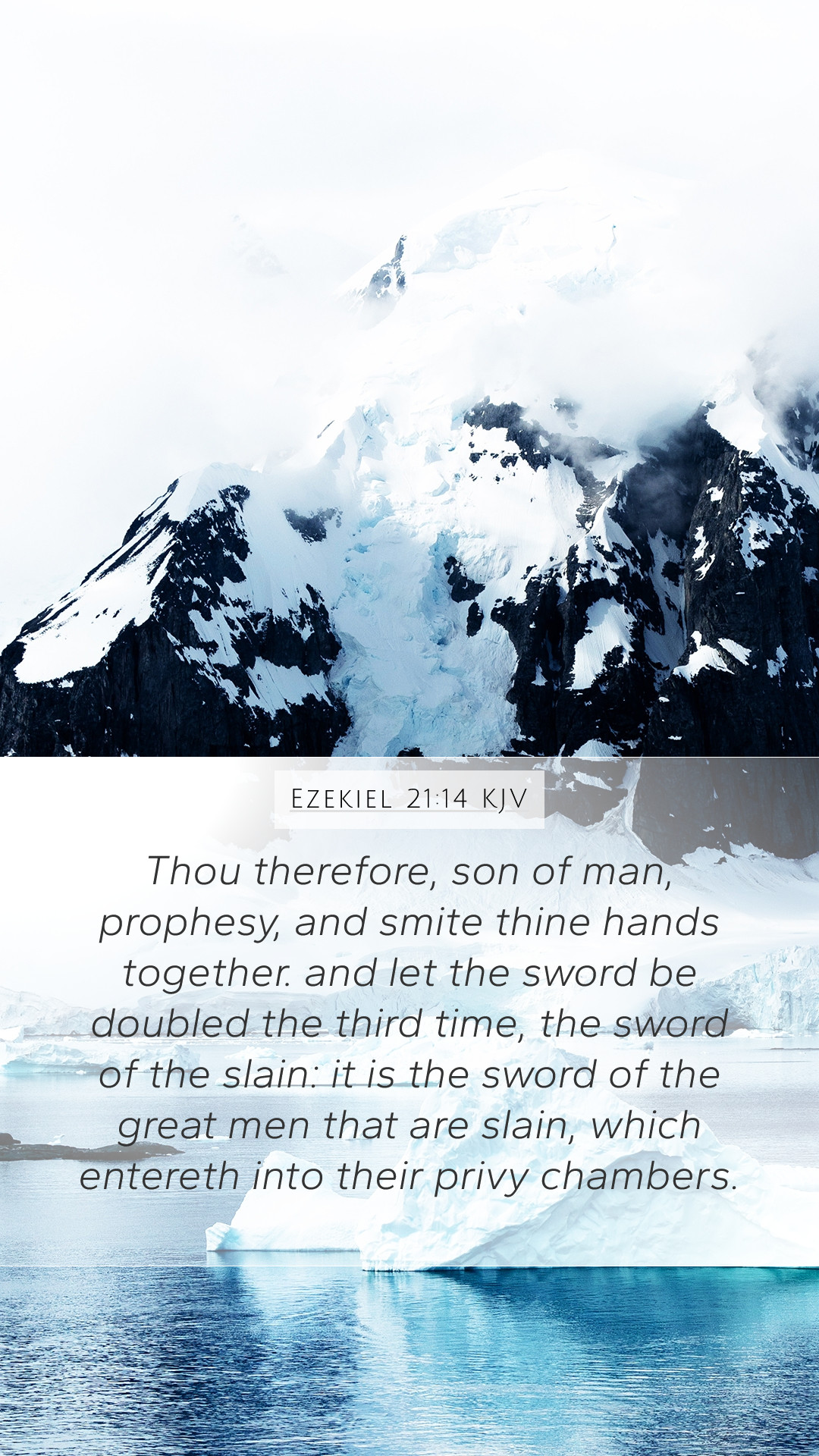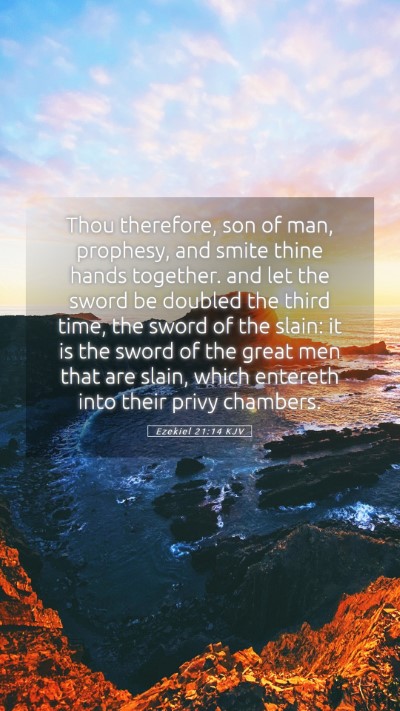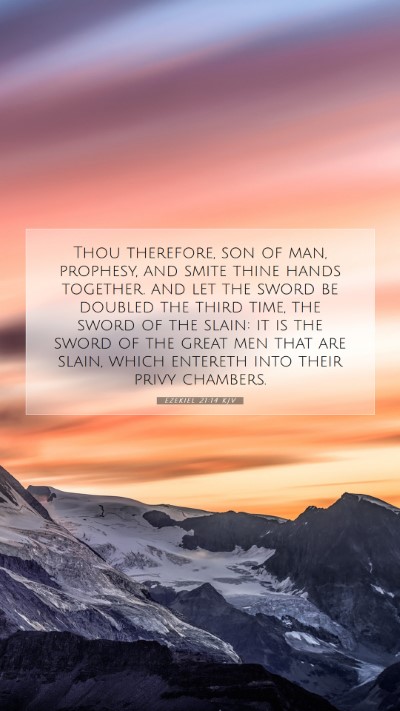Ezekiel 21:14 - Meaning and Commentary
Bible Verse: Ezekiel 21:14
"You, therefore, son of man, prophesy and strike your hands together. The sword shall come down twice, yes, thrice, and it is the sword for the great slaughter. It is the sword for the great slaughter that surrounds them."
Introduction
The verse Ezekiel 21:14 serves as a significant point in understanding God's impending judgment against His people. This scripture presents vivid imagery of violence and destruction, which emphasizes the seriousness of the prophet's message. In this analysis, we will combine insights from several public domain commentaries, including those by Matthew Henry, Albert Barnes, and Adam Clarke, to deepen our understanding of this powerful verse.
Contextual Background
The Book of Ezekiel was written during a time of crisis for the Israelites, specifically during their Babylonian exile. As a prophet, Ezekiel was tasked with delivering messages of both warning and hope. This verse captures a moment where God’s judgment is foretold, emphasizing the gravity of sin and the consequences that follow.
Verse Explanation
-
Divine Judgment:
According to Matthew Henry, this verse represents God's displeasure at the persistent wickedness of His people. The act of striking hands signifies a prophetic gesture indicating the severity of the judgment upon Israel.
-
Symbolism of the Sword:
Albert Barnes notes that the sword symbolizes death and destruction. The repetition of the phrase "great slaughter" highlights the inevitability and severity of the impending doom. In biblical tradition, the sword often represents the execution of God's judgment through warfare and disaster.
-
Prophetical Urgency:
Adam Clarke elaborates on the urgency in Ezekiel's call to prophesy. The emphasis on the act of striking hands together serves to alert the people to attention and urgency, illustrating that they must heed the prophetic warning to avert disaster.
Interpretation Insights
From a combined hermeneutical perspective, Ezekiel 21:14 carries a profound warning that speaks not just to the Israelites of the past but also resonates through time as a call for self-examination among all believers. The themes of divine judgment and the seriousness of sin are central to understanding Scripture in both historical and contemporary contexts.
Cross-References
- Jeremiah 47:6-7: A similar theme of destruction and warfare.
- Isaiah 34:6: References the sword of the Lord and His judgment.
- Ezekiel 30:24-26: Discusses God's role in bringing down nations as a form of judgment.
Application for Today
The principles derived from Ezekiel 21:14 extend beyond its historical context, offering valuable lessons on accountability and the fear of God. For modern believers, this verse acts as a reminder to remain vigilant against sin and to embrace God's calls to repentance and righteousness.
Conclusion
Understanding Ezekiel 21:14 requires careful consideration of its prophetic significance, the symbolic use of the sword, and the serious nature of God's judgments. Engaging with this scripture through Bible study insights and tools can help us grasp its deeper meanings and apply its lessons in our lives.
Additional Resources for Bible Study
- Bible Study Guides: Explore structured plans to navigate biblical texts.
- Online Bible Study Courses: Enroll in resources designed for comprehensive learning.
- Bible Study Topics: Delve into various themes in scripture for a broader understanding.


